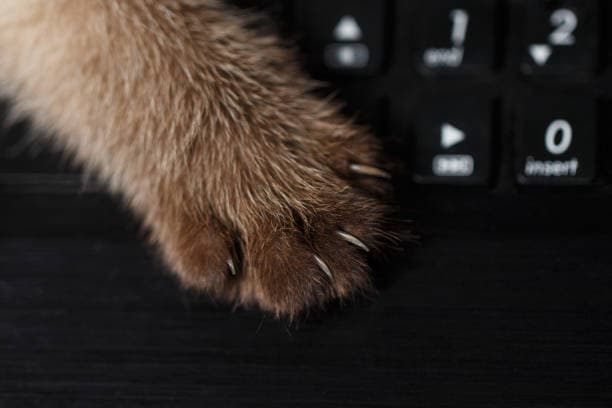Claws are a cat’s main tool for protection, movement on vertical surfaces and marking the territory. Many owners do not take care of their cat’s claws in any way, but this approach can result in some health issues.

Why should I trim cat nails
Any cat tries to take care of their claws. They sharpen them regularly, with the help of furniture or carpets. If no action is taken, most of these items will quickly turn into rags. How can I cut my cat's nails by myself? Firstly, they should not be trimmed too often: it is enough to perform this manipulation once every 3-4 weeks.
If the living conditions change, you should also periodically check the condition of the claws: perhaps the cat is now grinding them down naturally and you can temporarily halt the trimming sessions.
In terms of trimming devices, the usual scissors, tweezers or nippers are not suitable. Then, what is the easiest way to trim cats nails? The answer is - with the help of appropriate tools. Any pet shop offers now a variety of options:
A tool that looks like scissors, but with specially shaped blades that allow you to make a cut at the right angle.
A miniature relative of a garden tool. Advanced models are equipped with restraints, which will be a big plus for a novice cat owner.
A tool visually and functionally similar to a cigar guillotine.
An alternative option would be a special electric trimmer (grinder). This tool does not cut the claws, but grinds them at the right angle, leaving no bumps and delaminations. In all respects an excellent tool, with a small exception: many cats and dogs get scared to the point of panic, because of its buzzing.
If you have not trimmed your cat's claws before, and especially if the claws are dark, it is best to consult with a specialist (veterinarian, groomer, breeder) in advance, in order to find out how to handle the selected tool.

Set aside an hour for this crucial procedure (including breaks so that the cat can rest), and act without haste:
Prepare the tools: a claw cutter, antiseptics and cotton pads or swabs, a hemostatic sponge, etc.
Treat the tool and your own hands with antiseptic. The cat’s paws can simply be washed with water.
Place your pet in a position that is comfortable for both of you. You can put them on your knees with their back to you (it will be more comfortable) or lay them on their back.
Firmly, but carefully, fix the paw in your hand. Lightly press on the pad - the retracted claw will be exposed to its full length.
Use the tool to cut off the tip of the claw, stepping back a little from its redder part. If the claw is light, the red part with soft tissues and vessels is clearly visible - focus on its border.
File the tip with a grinder, if necessary. At the end of the procedure, praise the pet, reward them with a treat.
Only a very calm and accustomed to the procedure cat will calmly let you trim all the claws at one time. At first, one paw per day is already an achievement worthy of praise and encouragement!



